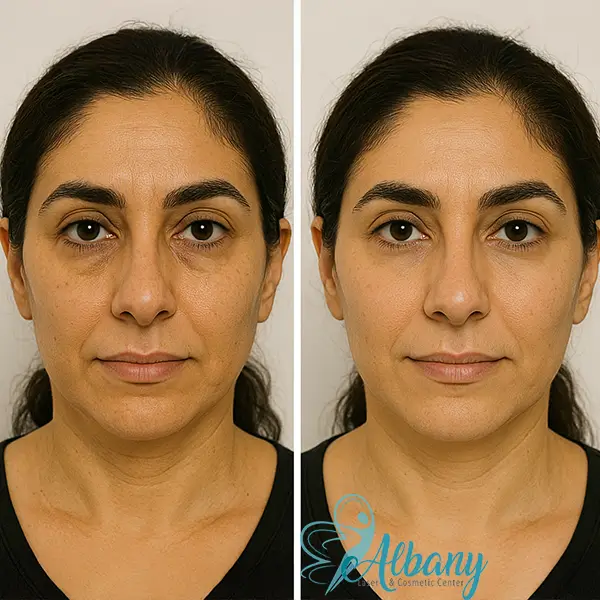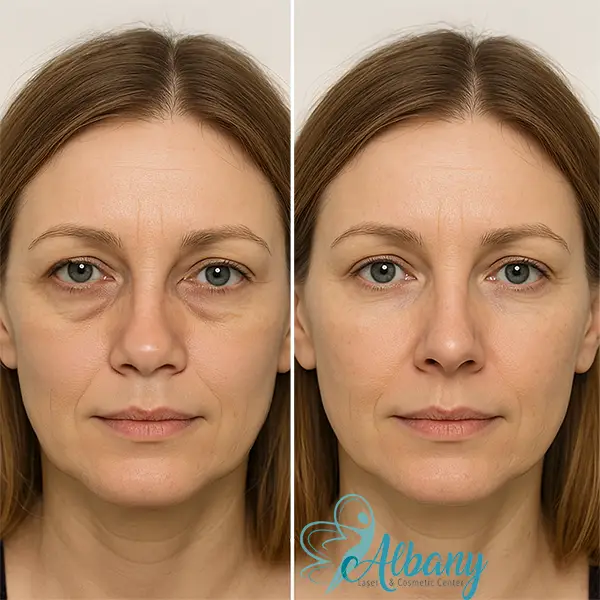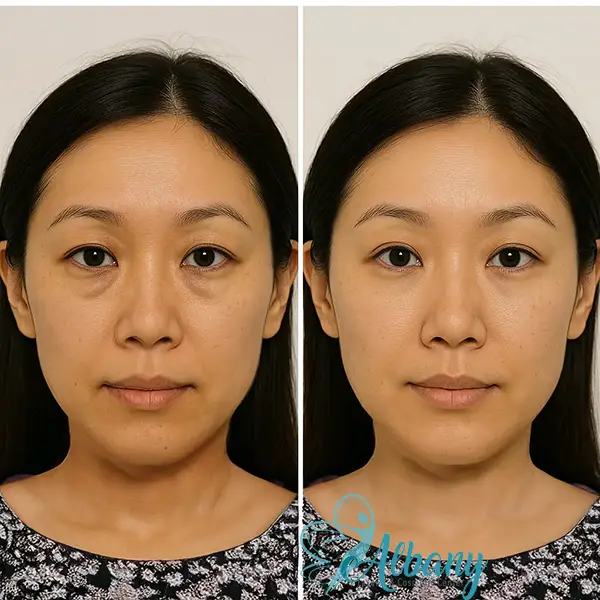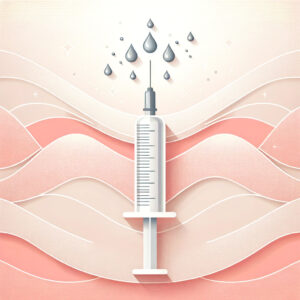Dermal fillers Safety
When considering getting Filler injections, it’s important to be aware of the potential side effects and understand how you can reduce your risk.
The most common side effect associated with facial fillers is swelling and bruising at the injection site. This typically lasts for up to a week or two following the procedure but may be longer in some cases.
- Other possible side effects include redness, itching, pain, discoloration, and tenderness. In rare cases, some people experience infection at the injection site or an allergic reaction to the filler material itself. It’s also possible that the filler may migrate away from the desired area or cause lumps or bumps in the treated area.
- If swelling or other side effects become excessive following a facial filler injection session, speak to your health professional immediately, as they may recommend over-the-counter medications such as Arnica cream or tablets to help reduce discomfort and swelling in some cases. In more extreme cases where infections have taken root due to improper technique or unsterile practices during an injection session, antibiotics may be prescribed for treatment of both bacterial and fungal infections that could have resulted from contaminated syringes being used during the procedure.
Here’s a practical overview of pricing, comfort, how the technology works, and what you should do to protect your results between sessions.
How to enhance safety of cheek fillers injection
Cheek fillers are becoming increasingly popular as a safe and effective way to enhance the shape and appearance of your face. While there may be some risks associated with any type of cosmetic procedure, there are several measures you can take to ensure that your experience with cheek fillers is as safe and successful as possible.
- The first step in ensuring the safety of cheek fillers is to choose a health professional who specializes in aesthetic procedures. This means that they have received advanced training in performing such procedures and are up-to-date on the latest techniques and technologies available. A qualified professional can evaluate your individual needs, assess any existing medical conditions, and develop a customized treatment plan tailored to you. They will also be able to answer any questions you have about the procedure, its potential results, and its potential risks.
- When selecting an injector for your cheek filler treatment, it is important to choose someone who has extensive experience with cosmetic injections specifically because these injections require a high level of skill due to their delicate nature.
- Additionally, it is essential to understand what type of filler product or products will be used for your treatment since different fillers have different properties that could potentially impact the outcome of your treatment. Many dermal filler products contain lidocaine, which helps numb the area prior to injection; however, some manufacturers do not include this ingredient in their products which could lead to increased discomfort during the procedure. Ultimately, when choosing an injector for facial fillers, make sure they are experienced in performing such treatments and that they use only FDA-approved products.
- Another factor that is important when considering safety with regard to cheek fillers is post-treatment care instructions. After any type of cosmetic injection treatment, it is important to closely follow all aftercare instructions provided by your practitioner including avoiding direct sun exposure or harsh skin care products until the treated area has fully recovered from swelling or bruising if present. Additionally, many practitioners recommend using cold compresses within 24 hours after injection followed by gentle massage in order to help promote even distribution of the product within the dermis layer beneath the skin’s surface.
- Finally, while rare side effects may occur with any kind of cosmetic procedure including allergic reactions or migration of product if injected incorrectly; these risks can often be minimized when choosing an experienced injector and following proper post-treatment guidelines closely.
All in all, cheek fillers are considered relatively safe when performed by a qualified professional who uses quality FDA approved products specifically designed for use on facial areas like cheeks as well as providing comprehensive post-injection care instructions and advice on how best optimize results while minimizing risk factors associated with this type of aesthetic treatment option.
Request Your Appointment Today
Read our privacy policy here




